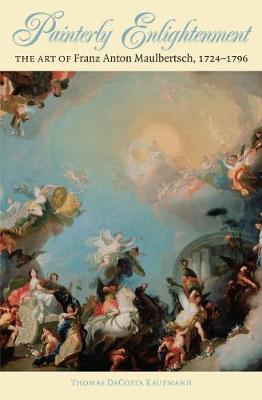Bettie Allison Rand Lectures in Art History
1 total work
Franz Anton Maulbertsch (1724-1796) was an Austrian fresco painter known for his bold use of color. Although he has been recognized in the Central European regions where he worked, Maulbertsch has remained outside the general canon of art history. With Painterly Enlightenment, Thomas DaCosta Kaufmann recovers the story of Maulbertsch, offering the first comprehensive English-language study of the long-neglected artist.
Kaufmann situates Maulbertsch as a fresco painter at a time of transition to easel painting, a colorist at a time when color was not fully appreciated by contemporary observers, and an interpreter of religious themes at a time when secular subjects were becoming more popular. In this analysis, he is shown caught between the intellectual forces of the Enlightenment and the waning power of the traditional church, thus helping to illuminate the relationship between the Enlightenment and the arts. Kaufmann provides a thorough foundation for the fresh recognition of one of the great painters of eighteenth-century Europe, a leading fresco painter who is a colorist worthy of comparison to the best of his contemporaries, including the celebrated Venetian artist Giovanni Battista Tiepolo.
Kaufmann situates Maulbertsch as a fresco painter at a time of transition to easel painting, a colorist at a time when color was not fully appreciated by contemporary observers, and an interpreter of religious themes at a time when secular subjects were becoming more popular. In this analysis, he is shown caught between the intellectual forces of the Enlightenment and the waning power of the traditional church, thus helping to illuminate the relationship between the Enlightenment and the arts. Kaufmann provides a thorough foundation for the fresh recognition of one of the great painters of eighteenth-century Europe, a leading fresco painter who is a colorist worthy of comparison to the best of his contemporaries, including the celebrated Venetian artist Giovanni Battista Tiepolo.
